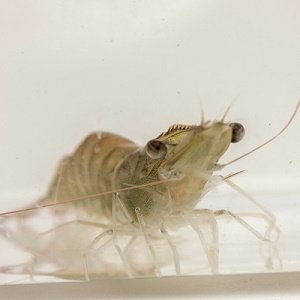Ireland.- A new treatment has been developed for Ichthyophthirius multifiliis, a parasite commonly found in freshwater fish which could save the ornamental and farmed fish industries billions of euro per year.
A compound was first identified by researchers from the EU-funded ParaFishControl project, which examines fish-parasite interactions in aquaculture. Its effectiveness in treating certain parasitic diseases led researchers to submit a patent for its production.
The treatment was first tested on the I. multifiliis parasite, which causes white spot disease in a range of freshwater fish. The disease is highly damaging for both the ornamental and farmed fish industries due to its high mortality rate.
A new company, Sundew, has been founded to further develop and commercialise the compound. The Copenhagen-based SME will facilitate the development of large-scale production and purification of the product, which it has named BIOKOS.
The need for new treatments arose following the ban of malachite green, which was found to be carcinogenic and genotoxic. No other compound to date has been as effective for control of the infection.
Sundew researchers are hopeful that BIOKOS will be in high demand in both the aquaculture and ornamental production markets. Aquaculture production alone is valued at over €5 billion per year in the EU.
This new treatment, and many other results originating from the past five years of research within ParaFishControl, will be presented at the project’s Final Conference “Innovative Strategies to Control Parasites in Aquaculture Farms” in Brussels on 11 March 2020. For further information and to register, please visit bit.ly/2veQPVN
To learn more about ParaFishControl, please visit the website at parafishcontrol.eu or follow the project on Twitter @ParaFishControl
Stay Always Informed
Join our communities to instantly receive the most important news, reports, and analysis from the aquaculture industry.
Editor at the digital magazine AquaHoy. He holds a degree in Aquaculture Biology from the National University of Santa (UNS) and a Master’s degree in Science and Innovation Management from the Polytechnic University of Valencia, with postgraduate diplomas in Business Innovation and Innovation Management. He possesses extensive experience in the aquaculture and fisheries sector, having led the Fisheries Innovation Unit of the National Program for Innovation in Fisheries and Aquaculture (PNIPA). He has served as a senior consultant in technology watch, an innovation project formulator and advisor, and a lecturer at UNS. He is a member of the Peruvian College of Biologists and was recognized by the World Aquaculture Society (WAS) in 2016 for his contribution to aquaculture.







